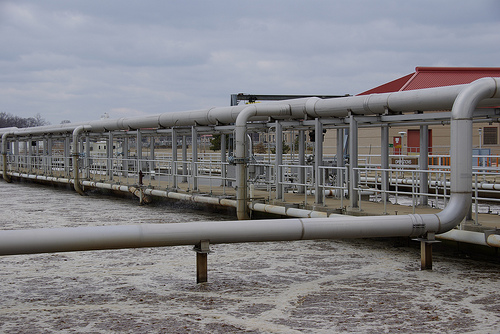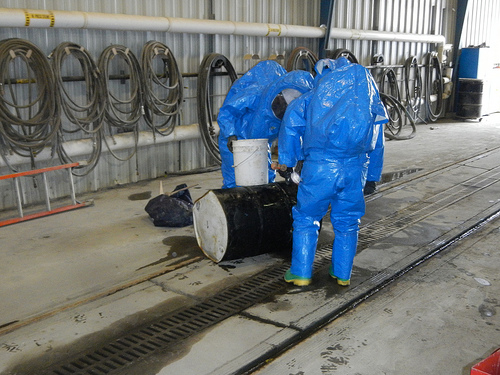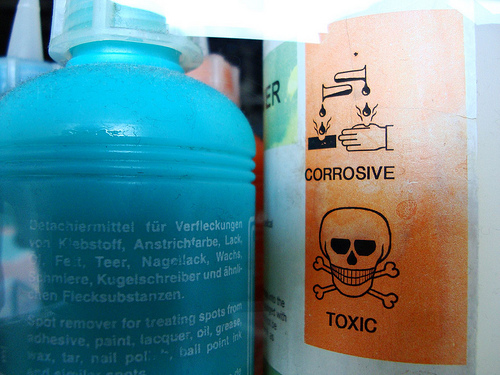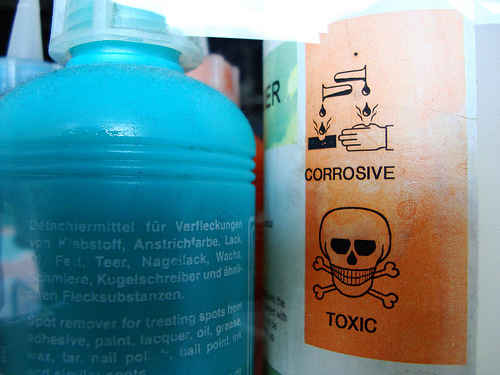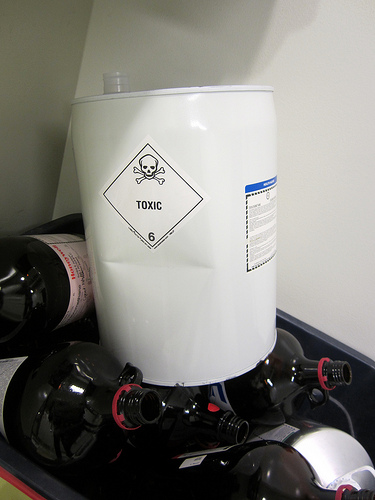Late in June the U.S. Supreme Court issued its latest ruling on the Environmental Protection Agency (EPA) efforts to implement the Clean Air Act (CAA). This time a sharply divided Court voted 5 to 4 to vacate EPA’s attempt to regulate hazardous air pollutant (HAP) emissions from fossil fuel-fired electricity power plants. The justices split over when during a decade-spanning, multi-phase rulemaking did CAA require EPA to calculate the costs and benefits of regulation—the Court majority ruled that this calculation should have occurred in the first round, rejecting EPA’s decision to do so later in the rulemaking sequence.
Audit, Compliance and Risk Blog
Divided Supreme Court Vacates EPA Fossil Fuel Power Plants Rule
Posted by Jon Elliott on Tue, Jul 28, 2015
Tags: Environmental risks, Environmental, EPA, Hazcom, Oil & Gas
It’s been more than 30 years since the U.S. Congress enacted national underground storage tank (UST) requirements (federal UST Law) in 1984. The Environmental Protection Agency (EPA) published extensive UST regulations in 1988, establishing technical requirements for the following:
Tags: Environmental risks, Environmental, EPA, Underground Storage Tanks, Hazcom
DHS Prepares To Expedite Approval Of Chemical Facility Site Safety Plans
Posted by Jon Elliott on Tue, Jul 14, 2015
Late in May 2015, the Department of Homeland Security (DHS) issued guidelines under which qualifying chemical facilities can apply for expedited approval of site safety plans (SSPs) intended to protect the facilities against criminal or terrorist activity. These guidelines respond to a Congressional requirement included in amendments adopted in December 2014 to DHS’ Chemical Facility Anti-terrorism Standards (CFATS) program.
Tags: Health & Safety, Environmental risks, Environmental, Hazcom
Management of chemicals by your organization raises a host of environmental health and safety (EH&S) issues. Some of those issues are represented by legal and regulatory compliance requirements, others by formal but non-binding programs that range from company policies to ISO certifications. In response, organizations adopt and implement a wide variety of EH&S programs, including very broad ones (e.g., compliance with the Hazard Communication Standard) as well as very narrow ones (e.g., programs for managing entry into Confined Spaces). Organizations with sufficient resources and the will to organize themselves will create systematic programs to evaluate EH&S issues to ensure they’re addressed, and to design and coordinate programs in ways that do so effectively and efficiently. (In 2013-2014 I prepared a series of e-books that outlined EH&S regulatory requirements triggered by chemicals - click here to download).
Tags: Audit Standards, Health & Safety, OSHA, Environmental risks, Environmental, EHS, Hazcom
Did you know that “what you drive, how you drive, and what fuel you use can impact both the environment and your pocketbook?” The U.S. Environmental Protection Agency (EPA) has put together a Green Vehicle Guide website that provides useful information and answers to all your questions about how you can go green on the road and save money too.
Tags: Health & Safety, California Legislation, Training, Environmental risks, Environmental, EPA, Hazcom, Transportation
July 1 Deadline For California’s Revised Industrial Storm Water Requirements
Posted by Jon Elliott on Tue, Jun 30, 2015
The federal Clean Water Act (CWA) and state water quality laws (including California’s Porter-Cologne Water Quality Control Act) govern activities that may affect “waters of the United States.” Routine discharges from industrial and public sources make up most potentially polluting discharges, and are subject to National Pollutant Discharge Elimination System (NPDES) permits and California Waste Discharge Requirements (WDRs), but additional requirements also apply to potential “storm water” runoff from rainwater and snow, which can entrain oils and other pollutants and wash them down storm drains into water bodies. The US Environmental Protection Agency (EPA) established the first broad-based national program in 1990, and has revised and expanded requirements over the past quarter century (often in response to court decisions finding its efforts inadequate). States have followed suit. For example, in 2014 California updated its industrial storm water requirements, replacing a general permit adopted in 1997 with a new one that becomes effective on July 1, 2015. The new permit revises and expands requirements, including narrowing exemptions for “light industry” facilities to become conditional exemptions subject to certification requirements, and addition of detailed requirements for “preproduction plastic” materials. The remainder of this note summarizes the new California requirements, which generally are comparable to EPA’s national general permit (last updated in 2008)–so readers outside California should remember that your facilities face analogous responsibilities.
Tags: Health & Safety, California Legislation, Environmental risks, Environmental, EPA, Hazcom
The Occupational Safety and Health Administration (OSHA) adopted massive changes to its Hazard Communication Standard (HCS or Hazcom) effective May 25, 2012, updating chemical information, labeling and training requirements that had been in place since the 1980s. These revised requirements conform U.S. requirements to international guidelines under the U.N.-sponsored Globally Harmonized System of Classification and Labeling of Chemicals (GHS). Recognizing the extent of these changes, OSHA provided multi-year compliance phase-ins for employers whose workers manufacture, distribute or use chemicals. The next such deadline is June 1, 2015, when Safety Data Sheets (SDSs) must replace Material Safety Data Sheets (MSDSs) and end-user employers must ensure that their Hazcom programs reflect most of the revised requirements.
Tags: SDS, Health & Safety, OSHA, Environmental, EPA, Hazcom
As global attention to climate change and greenhouse gas (GHG) emissions has grown over the past two decades, California has been one of the leading jurisdictions. This began with statewide planning efforts in the 1990s, designed to identify and quantify GHG emissions. After the turn of the millennium it expanded to significant control requirements imposed on targeted source categories—notably a 2002 law (AB 1493) requiring the world’s first GHG emission limits on motor vehicles.
Tags: Health & Safety, Environmental risks, Environmental, EPA, Greenhouse Gas, ghg, Hazcom
Hazardous Chemicals: Toxic Substances Control Act (TSCA) Approaches 40, Part 2
Posted by Jon Elliott on Wed, Mar 25, 2015
My most recent blog provided a short summary of chemical evaluation and reporting requirements under the Toxic Substances Control Act (TSCA) of 1976. These requirements apply when a manufacturer or importer is preparing to introduce a “new chemical substance” into commerce in the U.S., to provide the Environmental Protection Agency (EPA) with information to evaluate whether chemical hazards require regulatory restrictions (up to and including outright bans) to provide adequate protections to human health and the environment. TSCA does not include any blanket requirement for ongoing studies or updated evaluations of an “existing chemical substance” after it has entered commerce—including those already in commerce when TSCA took effect, so some chemicals have never undergone a regulatory review of their hazards.
Tags: Corporate Governance, Business & Legal, Health & Safety, Environmental risks, Environmental, EHS, EPA, Hazcom
Hazardous Chemicals: Toxic Substances Control Act (TSCA) Approaches 40
Posted by Jon Elliott on Thu, Mar 19, 2015
Tags: Health & Safety, Environmental risks, Environmental, EPA, Hazcom


